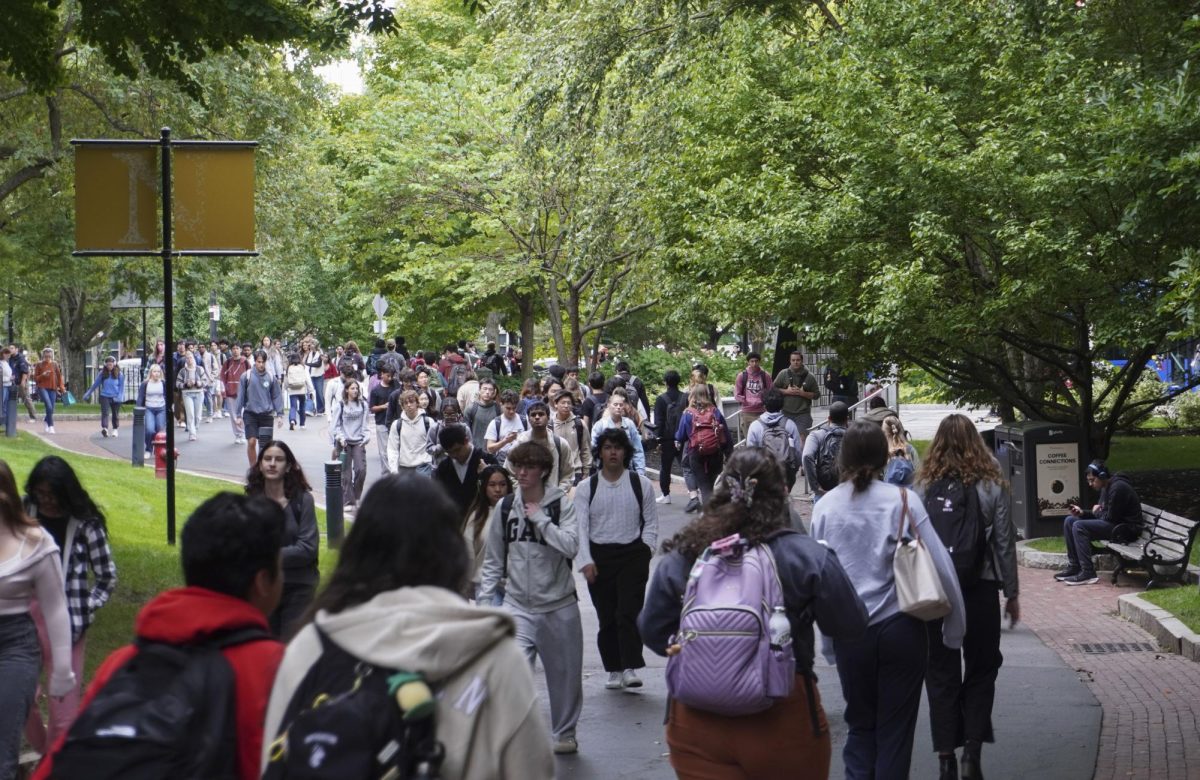For my younger brother, serving in the armed forces is not just a pipe dream. He’s 18 years old, currently enrolled in the Army Reserve Officers Training Corps (ROTC) program at his school and has recently considered putting his college education on hold in favor of enlisting.
This news came as no surprise to me, as I can remember him vividly decked out in full military garb for Halloween at age 10. It’s not an accident his favorite color is forest green and his favorite movie is “Saving Private Ryan.” He’s the “strong and silent” member of our family, but he talks about his training with the same fever pitch I use when I nail an interview for a story. We’re as different as siblings can be, but I’ve never wavered in my support for who he is and what he wants to do.
Admittedly, my brother’s interest in enlisting makes me uneasy. We are, after all, in the middle of hugely unpopular and unsuccessful wars in Iraq and Afghanistan. Enlisting now would almost guarantee deployment to an area of the world where US casualties are at almost 4,000 and top military officials are arguing we’ll likely be mired in that conflict for years.
For Cadet Justiniano Rodrigues, who enlisted in 2003, the decision to desert the Army was a hard one. As reported by The News in the Feb. 11 edition, Rodrigues went Absent Without Official Leave (AWOL) after learning that he would be shipped off to Iraq. He says he was conflicted internally with how the Army presented itself and his own moral code against violence.
People can have different opinions on Iraq and on Rodrigues’ decision, but it’s not hard to fathom that an 18-year-old would be scared to go to war. Imagine how many young men and women enlisted after playing a few rounds of Halo in their parents’ basements, believing an unrealistic delusion that war is an exciting, fantastical world. My brother is a mature guy, but I still worry that his idealistic view of serving his country doesn’t bode well with reality.
Though my knowledge of the intricacies of the military is limited, I am still aware of the basic facts. According to the National Priorities Project, a Boston-based organization that tracks federal data and information, the Army missed its benchmarks for recruitment for the third year in a row. There’s no doubt the decease stems from the failed conflict in Iraq. But what’s more startling is that, according to the report, recruiters have lowered their standards dramatically: The number of recruits with high school diplomas has decreased from 94 percent in 2003 to 70 percent in 2007.
The fact that we’re sending less-qualified soldiers to fight is bad enough. But with depressing figures like that, the Army’s advertising campaign must offer brighter incentives. My brother has heard the same promises of world travel and college tuition reimbursement from his recruiter, as Rodrigues must have.
We live in the society where the word “patriot” has undergone several transformations. Five years ago, you were considered unpatriotic if you didn’t blindly throw your support into the march to war. Today, the meaning is reversed. According to a CNN poll earlier this month, 64 percent of Americans oppose the war – and I’m sure they all consider themselves the real “patriots.”
Still, regardless of the death toll so far, it’s arguable that as young people, we remain mostly unaffected by the war overseas. There’s no draft – yet – to protest against, as there was during Vietnam, and our generation seems more concerned to end global warming than to end our stay in Iraq.
This is why serving is even more admirable for those troops stationed in Iraq now. They’re fighting a war so few believe in and there’s no doubt to the degree of courage it takes to serve your country in a way few others have. It takes a different brand of courage to stand up for what you believe is right and speak your mind when everyone says you’re wrong.
My brother has proven he possesses one kind of courage. But his real strength might lie in learning to adopt both.
– Jeff Miranda can be reached at [email protected]









